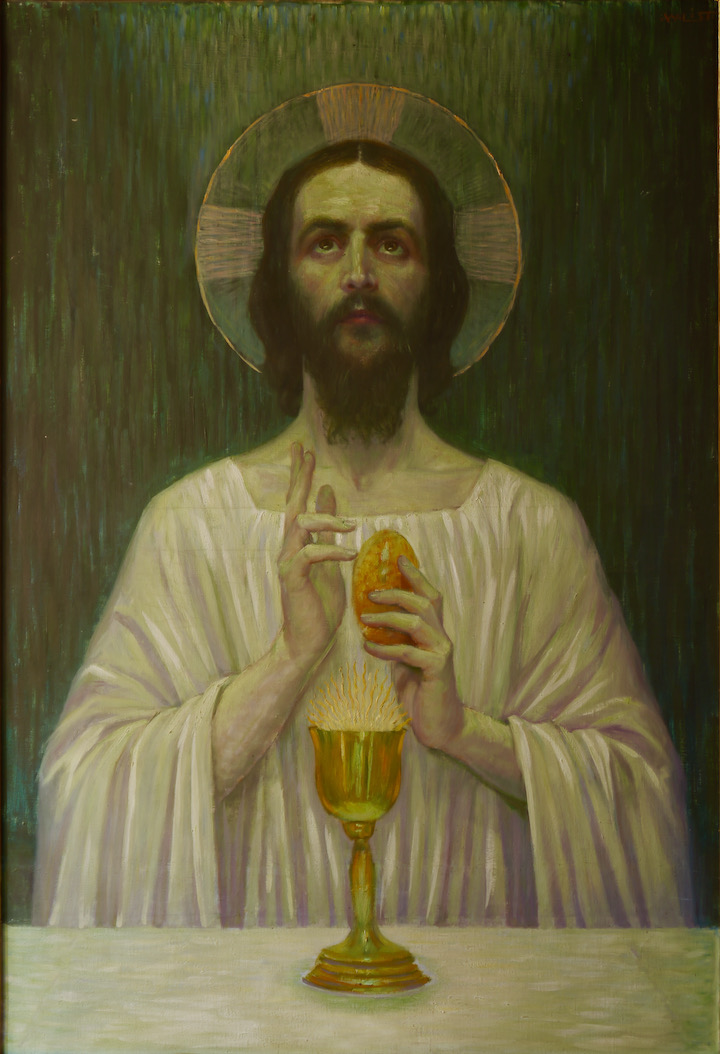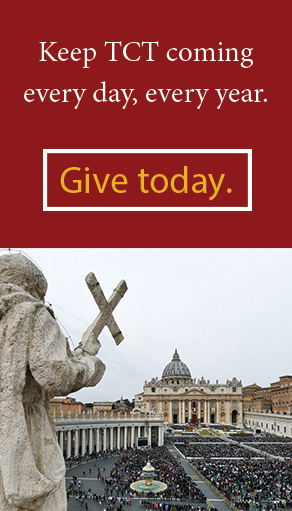We recently celebrated Memorial Day, the day on which we remember the heroic sacrifices made for us by those who served in the military. Fewer and fewer people seem to take this day seriously as anything other than a day off from work: something that provides us a “long weekend.”
Catholics should be especially disposed to respect such memorials, however, for several reasons. First, because Catholics have benefited as much as anyone else from the sacrifices of these men and women, and in certain ways more, since it was by them that their religious freedom was won – a freedom so few people in the world today enjoy.
But second, Catholics are more accustomed to celebrating memorials than many others because they participate in one at least once each week when they go to Mass. At Mass, we commemorate the life, death, resurrection, and ascension of Jesus Christ. The big difference between our commemoration of soldiers who died fighting for our country and our commemoration of Christ’s sacrifice is that Christ still lives.
At Mass, we do not merely remember something that happened centuries ago; rather, that historical event is made present to us. The Eucharistic sacrifice is celebrated, time and again, across the world and throughout history, but each makes present Christ’s singular sacrifice on Calvary, for as Heb 10:10 teaches: “we have been sanctified through the offering of the body of Jesus Christ once for all.” [emphasis added]

In the Mass, there is an intricate blending of past, present, and future. So, for example, in the Roman canon, we hear references all the way back to Genesis, to “Abel the Just,” Abraham, and “your priest Melchisedech.” The words of consecration refer back to words Jesus used at the Last Supper, which was itself a memorial of the Passover event when the Jewish people were rescued from their slavery in Egypt and brought into the Promised Land. We hear the priest link the sacrifice at the altar with the celestial altar in heaven, and we look forward to Christ’s coming again in glory. And the entire canon of the Mass is addressed to the Eternal Father by the priest speaking “in the person of Christ.”
Unfortunately, some people do not seem to realize that Christian faith proclaims that Christ rose bodily to the Father and that His human body persists in union with the Father and the Spirit. Perhaps they imagine His body melted away somehow somewhere along the line. This is a very common gnostic temptation: to imagine that only something spiritual can survive death, not anything physical or bodily. From the time of the earliest Church, we see the Fathers and Doctors vigorously opposing this gnostic heresy while always affirming the reality of the resurrection of the body.
Whenever this gnostic tendency spreads more widely, Christians start to lose their faith that Christ is really present in the Eucharist – as present as He was to the apostles during His life and as present as He was to them in the upper room after His crucifixion. And that He is really present in His Church. Without all that, the Church is taken to be just another human institution, not much different from others. Without faith in the concrete bodily character of the resurrection, people soon “spiritualize” the Church so much that it becomes as thin as the mists. No longer do I take myself to be a member of the Body of Christ, I start to see myself merely as someone who attends religious services once a week.
Without the continuing “real presence” of the Body of Christ – in the Church, the Eucharist, and the other sacraments – we are merely remembering some event that happened centuries ago but is no longer present to us now. Yet the Catholic faith has always held that Christ lives and is as present to us as He was to the apostles – as present to us as He was to St. Paul. We are not transformed merely by remembering something past; we are transformed by encountering something eternally present.
As Christians, one thing we can also say is that those who died are not simply dead and gone. They remain alive in Christ. And in the communion of saints, they remain connected to us, still praying for us, still giving themselves fully for our well-being.
But Christians should also be reminded that it is not enough merely to remember a sacrifice, we must become worthy of it. We do not remember it the way we remember what we had for dinner last week. We remember it the way we remember the vows we made when we got married. We remember it as a pledge and a promise to be transformed and to make a better future. The sacrifice of our forebears was an unmerited gift of love to us. We are called upon to “pay forward” those great gifts and blessings from generations past to the generations to come.
Do we?
We’ve had a tough year. We did not always acquit ourselves well. Consider: “Do all things without grumbling or questioning.” (Phil 2:14) “Let no corrupting talk come out of your mouths, but only such as is good for building up, as fits the occasion, that it may give grace to those who hear.” (Eph 4:29) “But now you must put aside all such things as these: anger, rage, malice, slander, and filthy language from your lips.” (Col 3:8) “Rid yourselves, therefore, of all malice, deceit, hypocrisy, envy, and slander.” (1 Pet 2:1) “Pursue peace with all men, and the sanctification without which no one will see the Lord. See to it that no one comes short of the grace of God; that no root of bitterness springing up causes trouble, and by it many be defiled.” (Heb 12:14-15)
Who among us can say we abided by those Gospel commandments this year?
*Image: Jesus with Bread and Wine by Wilhelm List, c. 1905 [private collection]

















